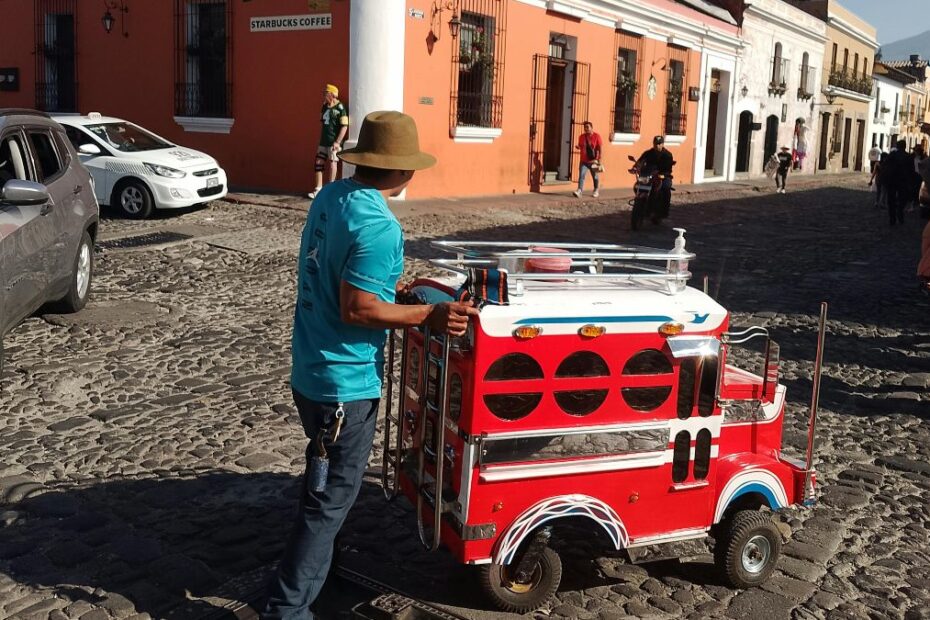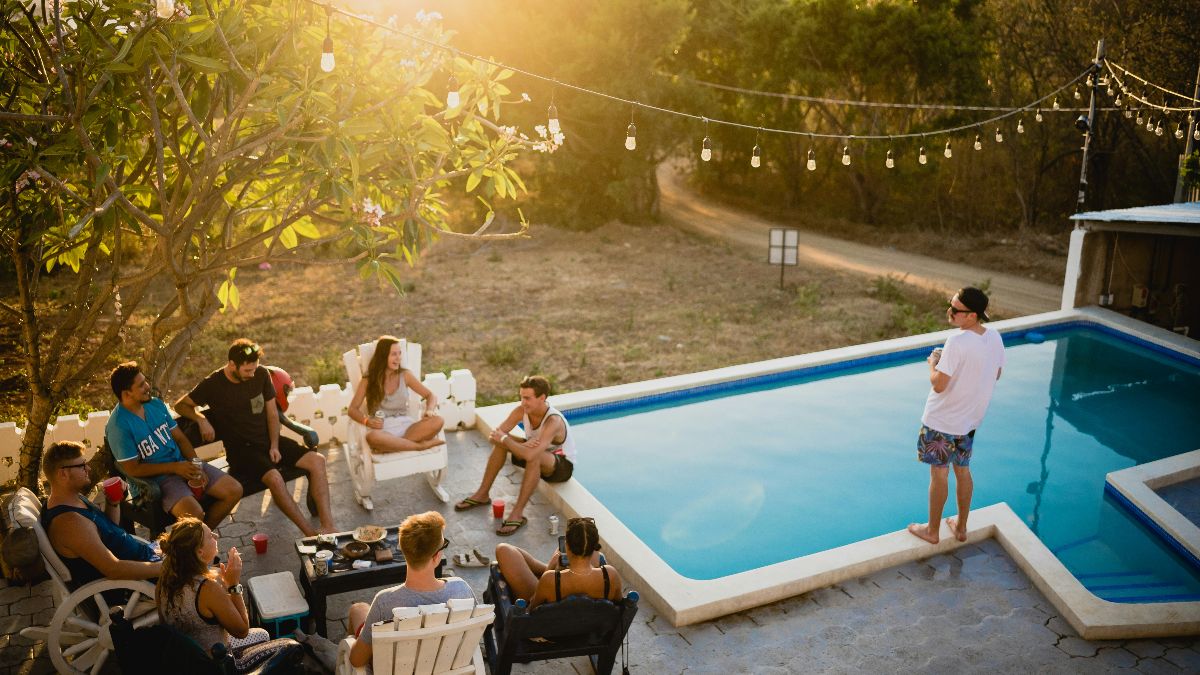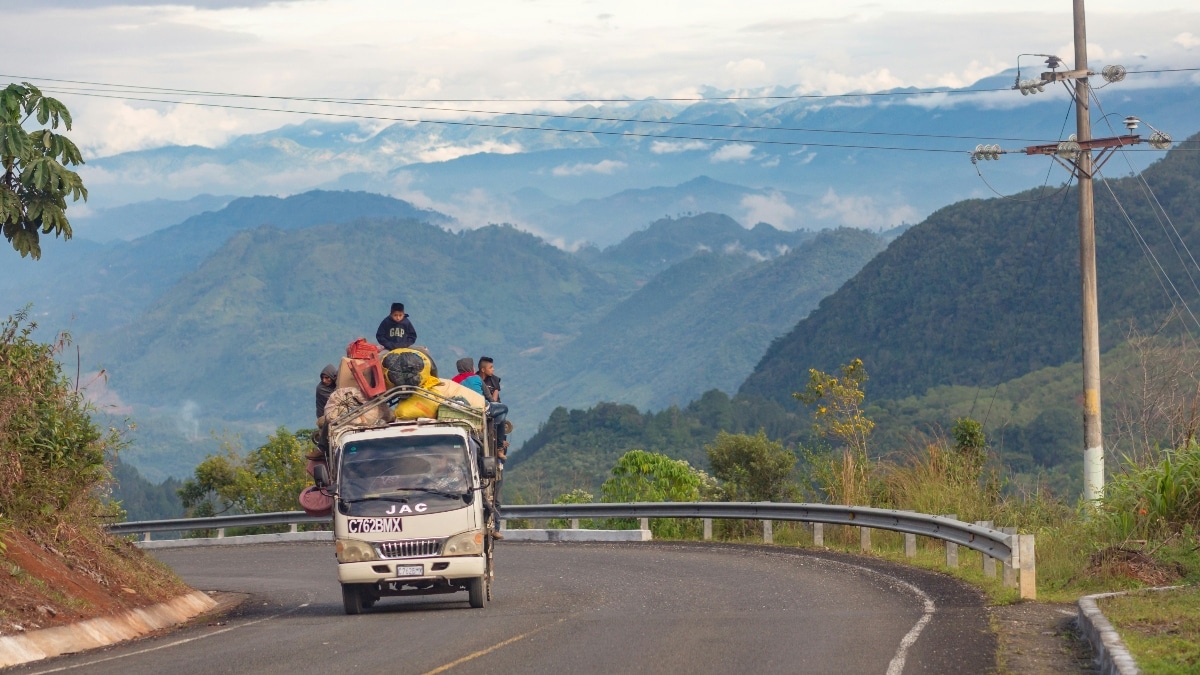Moving to Guatemala with kids is a big decision, and every family has different reasons for doing it. This article offers real insight into what life is like for expat families living in Guatemala.
Relocating abroad as a family is no small decision. It involves careful thought about safety, community, education, healthcare, and overall quality of life, not to mention how children will adapt. For some expats, Guatemala has proven to be the right choice. But what makes it stand out?
A recent question in a Guatemalan expat group on Facebook asked, “What do you think sets Guatemala apart from other places for expats? Specifically younger expats with children. Not just ‘it’s different than the US’ or ‘it’s cheap.’ What specific reason did you choose Guatemala over another place?”
The responses were honest and insightful, grounded in daily life rather than idealized expectations. And while every family’s situation is different, certain themes came up again and again, offering a clear picture of why Guatemala works for some.
View this post on Instagram
A Sense of Community That’s Hard to Find Elsewhere
One of the most consistent points was how easy it is to feel part of a community. In the Facebook post, expats describe towns all over the country where people walk everywhere, greet each other in passing, and take the time to stop and talk. Families quickly form friendships with both locals and other foreigners, and many children grow up surrounded by a mix of cultures.
One parent in Panajachel on Lake Atitlán, for example, said their three-year-old already had preschool friends and that they had built a strong social network in just a few years. Others spoke of towns where neighbors help each other out, people know your name, and there’s a constant sense of connection.
Culture That’s Alive and Present
Guatemala is probably the country in Central America with the most visible living cultural traditions. That’s not to say the other six countries don’t have their culture, but the strong, traditional Maya way of life and presence definitely sets Guatemala apart in the region. Expats noted how refreshing it is to live somewhere where traditional clothing, indigenous languages, and ancestral customs are still part of daily life. In many places, children see this firsthand in school and around town, giving them an early introduction to cultural awareness and diversity.
One parent described it as “a wonderful thing to see in daily life,” while others simply said, “the culture,” or more specifically, “the Mayan culture,” when asked what keeps them in Guatemala.
A Family-Friendly Attitude
Several parents commented on how welcoming Guatemalan society is toward children. People are generally patient with babies and small kids, and strangers often go out of their way to help. One expat said they loved raising their small children in Guatemala because of the kindness and warmth they experienced on a regular basis.
This cultural attitude can make a big difference for new families adjusting to life abroad.
A Climate and Lifestyle That Encourages Outdoor Living
The climate in much of Guatemala is another factor that appeals to expats. While coastal areas can be hot and humid, the highlands enjoy what many call “eternal spring” weather. Indeed, Guatemala’s nickname is “The Land of Eternal Spring,” something we highlight a lot on this website. Families living here appreciate being able to spend more time outdoors without dealing with harsh winters or oppressive summer heat.
It’s not just about the temperature, either. Guatemala’s geography makes it easy to plan weekend getaways to beaches, lakes, volcanoes, and historical towns. Several parents mentioned the ease of taking short trips to beautiful destinations, which keeps life with kids feeling active and interesting.
View this post on Instagram
Practical Freedom and Lifestyle Flexibility
Some expats spoke about a sense of freedom they hadn’t felt elsewhere. That included the ability to start small businesses more easily, build a house without excessive bureaucracy, or homeschool without constant red tape. One person described the difference by saying that going back to Canada felt like entering “minimum security prison” by comparison.
Not everyone will feel the same, but for those who value personal freedom and independence, Guatemala can feel less restrictive than life back home.
Education Options and Language Exposure
Education is a key consideration for any family moving abroad. Guatemala offers a suitable schools for expat kids, especially in Guatemala City and Antigua. Many of these schools offer bilingual curriculums, internationally recognized programs, and smaller class sizes than families might be used to.
Children in Guatemala also have the opportunity to learn multiple languages. Spanish is spoken everywhere, but in some regions, Mayan languages are also part of the local culture. For families who want to raise bilingual or even trilingual children, the environment supports that naturally. Homeschooling is also an option, and many parents do this. There is nothing in the rules saying homeschooling in Guatemala is illegal at all.
Healthcare and Safety: A Balanced View
Healthcare standards vary depending on location, but many expats report good experiences with private clinics and hospitals. Some mentioned receiving faster care in Guatemala than they would in the United States, often at a fraction of the cost.
Safety is often one of the first concerns for families considering a move to Guatemala. Many parents shared that while crime exists, most incidents are targeted and not random. A few even said they feel safer in Guatemala than in the U.S., especially when it comes to concerns like school shootings or random violence in public places. As one mother put it, she would feel more nervous sending her child to school in the U.S. than in her small Guatemalan town.
Practical Tips for Relocating to Guatemala as a Family
Moving to Guatemala (or any other country for that matter) with children involves more than finding a school or choosing a neighborhood. The transition itself requires planning, flexibility, and a few practical choices that can make family life easier from the start .If you’re looking for help navigating the red tape, companies like Solomon & Sons Relocation Services offer professional support to make the process easier for families.
Decide What to Bring (and What to Leave)
Most families moving to Guatemala downsize significantly before the move. Homes here are typically smaller, and many come unfurnished. It often makes more sense to bring only essentials like clothing, personal items, key electronics, and anything that would be expensive or hard to replace locally. Items like high-quality car seats, learning tools, or baby gear are not always easy to find and can be overpriced. Bring what you’ll genuinely need for your children’s daily routines. This obviously also include favorite toys and objects that make kids feel secure and comfortable.
Expect the Unexpected
The pace of life is slower in Guatemala, and things rarely go exactly to plan. Moving with kids means building in time for rest, unexpected delays, and emotional ups and downs. Families who settle in more smoothly often approach the move as a process rather than a single event. Having backup plans, digital copies of important documents, and some flexibility in your arrival schedule can make a big difference.
Help Kids Adjust Gradually
Children may adapt faster than adults, but big transitions still take time. In the first few weeks, keeping daily routines like bedtimes and meals the same as before can help provide stability. We touched on this earlier, but small comforts from home can go a long way, whether that’s a favorite toy or security blanket, or familiar snacks. Some families choose to arrive during school breaks to give children time to settle in before jumping into a new classroom environment.
Residency and Visa Planning
Families planning to stay long-term in Guatemala should understand their visa and residency options early. Most visitors enter on a 90-day tourist visa, which can be extended once for an additional 90 days. After 180 days, you must leave the CA-4 region (Guatemala, El Salvador, Honduras, and Nicaragua) to reset your visa. It goes without saying that this is something that can be impractical for families with young children.
Long-term residency is generally a better option when moving to Guatemala with kids. Temporary residency is available through programs like the rentista (for those with steady foreign income of at least $1,250 per month plus extra for dependents), pensionado (for retirees), or investor visa (requiring a minimum $60,000 investment). These are typically valid for two years and renewable. Families can include spouses and children on their applications, and if you have a Guatemalan-born child, you may be eligible for permanent residency right away. Planning for this ahead of time can make enrollment in schools and access to services far easier once you’re on the ground.
Get to Know the Basics Early
After arrival, it helps to quickly learn where to shop, how to pay bills, and how to access basics like mobile data, transport, and emergency contacts. Not everything is intuitive, and small errands can take longer than expected in the beginning. Connecting with other parents or local expat groups can make this learning curve shorter and far less stressful.
Timing Matters
Many families recommend planning your move around Guatemala’s dry season, especially if you’re arriving with young kids. Moving during the rainy season can add complications, especially in rural areas with unreliable infrastructure. Arriving during the start of a school term or just before can also make integration easier, both for children and parents.
Relocating with a family is never just about where you’re going. It’s about how you prepare, how you arrive, and how you settle in once you’re there. The more practical your approach, the easier the transition will be.
Guatemala Isn’t Perfect, and That’s Okay
Some expats in the Facebook group were clear that Guatemala isn’t a romanticized escape from the modern world. Issues like littering, limited public parks, and over-hunted wildlife are very real. Others pointed out that life in Guatemala isn’t drastically different from other countries in Latin America and that the success of the move often depends more on mindset than location.
One expat summed it up by saying Guatemala is just “a chunk of land with people.” The language and customs may change, but people are people, and it’s how you approach living here that will shape your experience.
Bottom line is that Guatemala is not for everyone, but for families looking for cultural depth, strong community ties, and a slower, more grounded way of life, it has a lot to offer. For many, the appeal goes beyond affordability or novelty. It’s about living with more intention, raising children in an environment that values people over possessions, and finding a place that feels real.
No country is perfect, but moving to Guatemala with kids resonates with those looking to build something different. And for those who find their place here, the rewards go far beyond what they originally expected.



